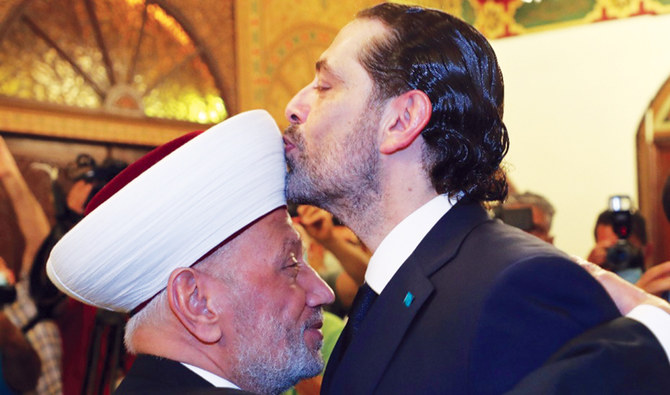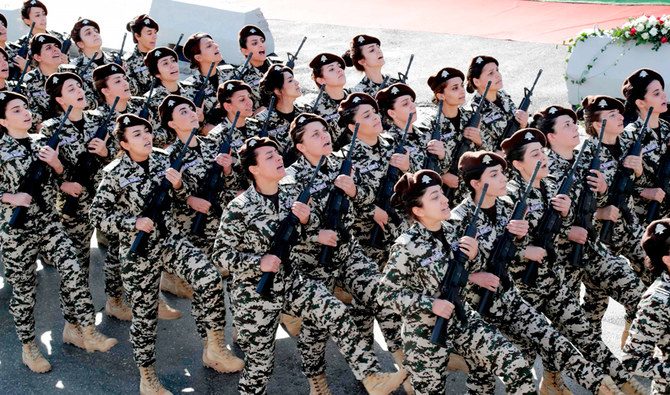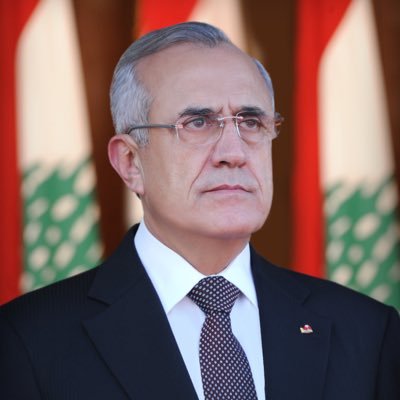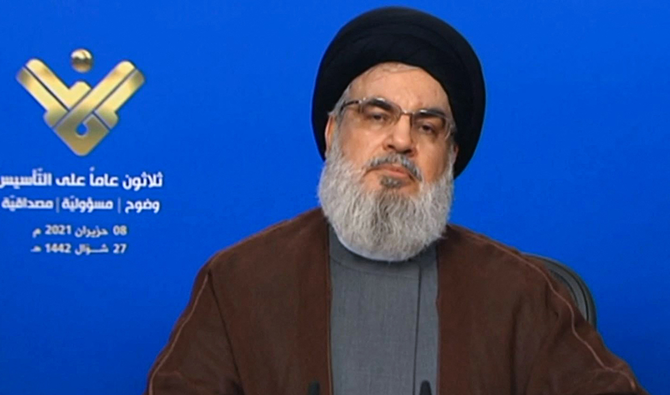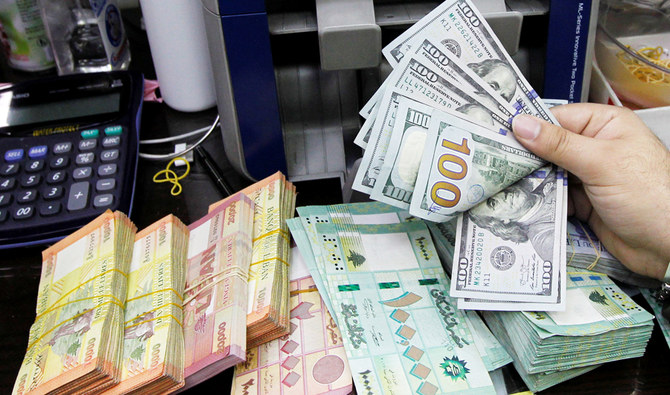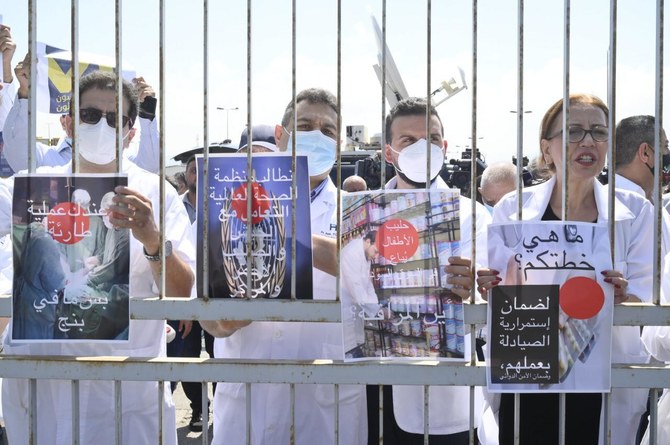
By Najia Houssari — arabnews.com — BEIRUT: Pharmacies in Lebanon shut their doors on Friday to protest severe supply shortages amid the country’s worst economic and financial crisis for decades. The two-day strike, called over a lack of medicine, gasoline and even infant formula, is the latest sign of Lebanon’s meltdown. Pharmacists, doctors, dentists, nurses and lab scientists took to the streets on Friday to voice their suffering, with people storming the Health Ministry’s interior courtyard and calling for rationalizing subsidies on medicine and a solution to the crisis in the healthcare sector. They urged the World Health Organization not to deal with authorities but instead deal with the Lebanese army and the Lebanese Red Cross. The strike has caused panic in hospitals, which are suffering from medical supply shortages. Fights have been reported between patients and medical staff, with some incidents filmed and posted on social media.
People have even been seen destroying the exterior of emergency departments, while doctors have clashed with patients who refused to postpone their surgeries due to the shortages. Dr. Hadi Mrad blasted the “ongoing corruption of the ruling class” that had violated people’s rights and remained “unpunished, supported and protected” by a corrupt system. “We have never seen something similar,” he told Arab News. “We cannot help our patients. We prescribe them medicine, but the pharmacies are empty. We ask them to run a blood test, but laboratories are not receiving patients due to the shortages in subsidized supplies. We want to admit them, but hospitals have run out of IVs. We get that there is no fuel or flour. But what did patients do to deserve this? What is currently happening is intentional and the authority is determined to kill its citizens.”
